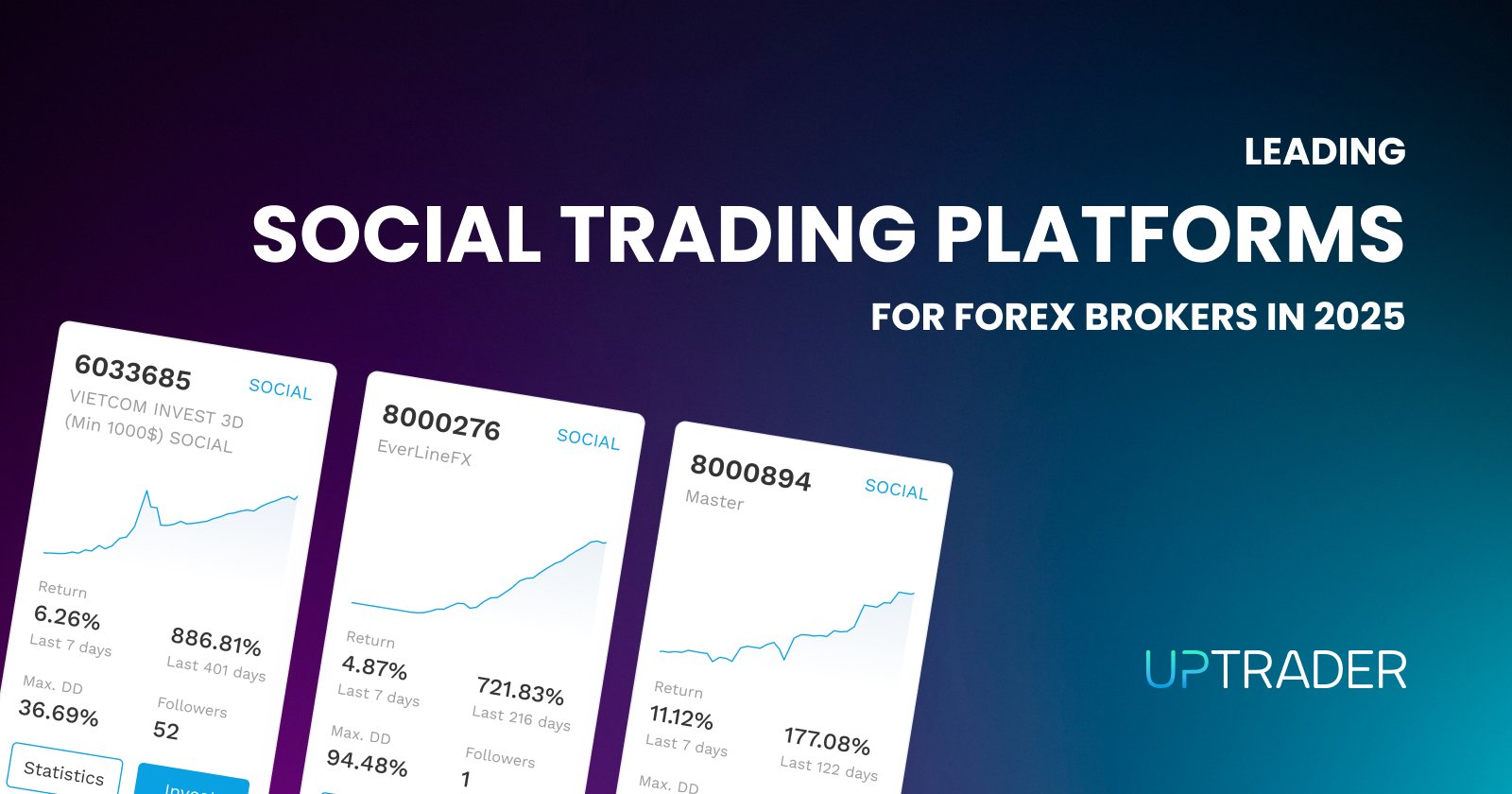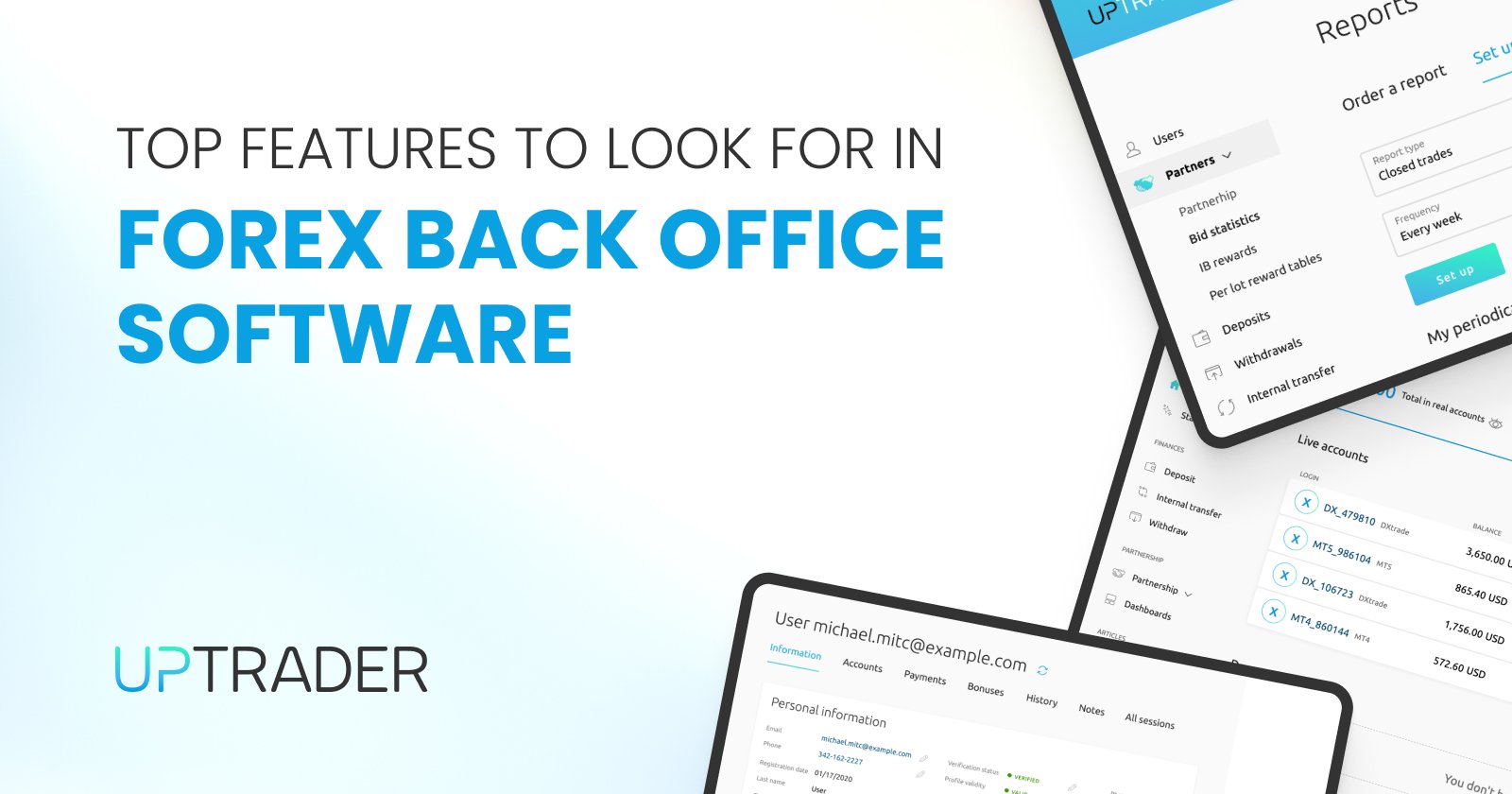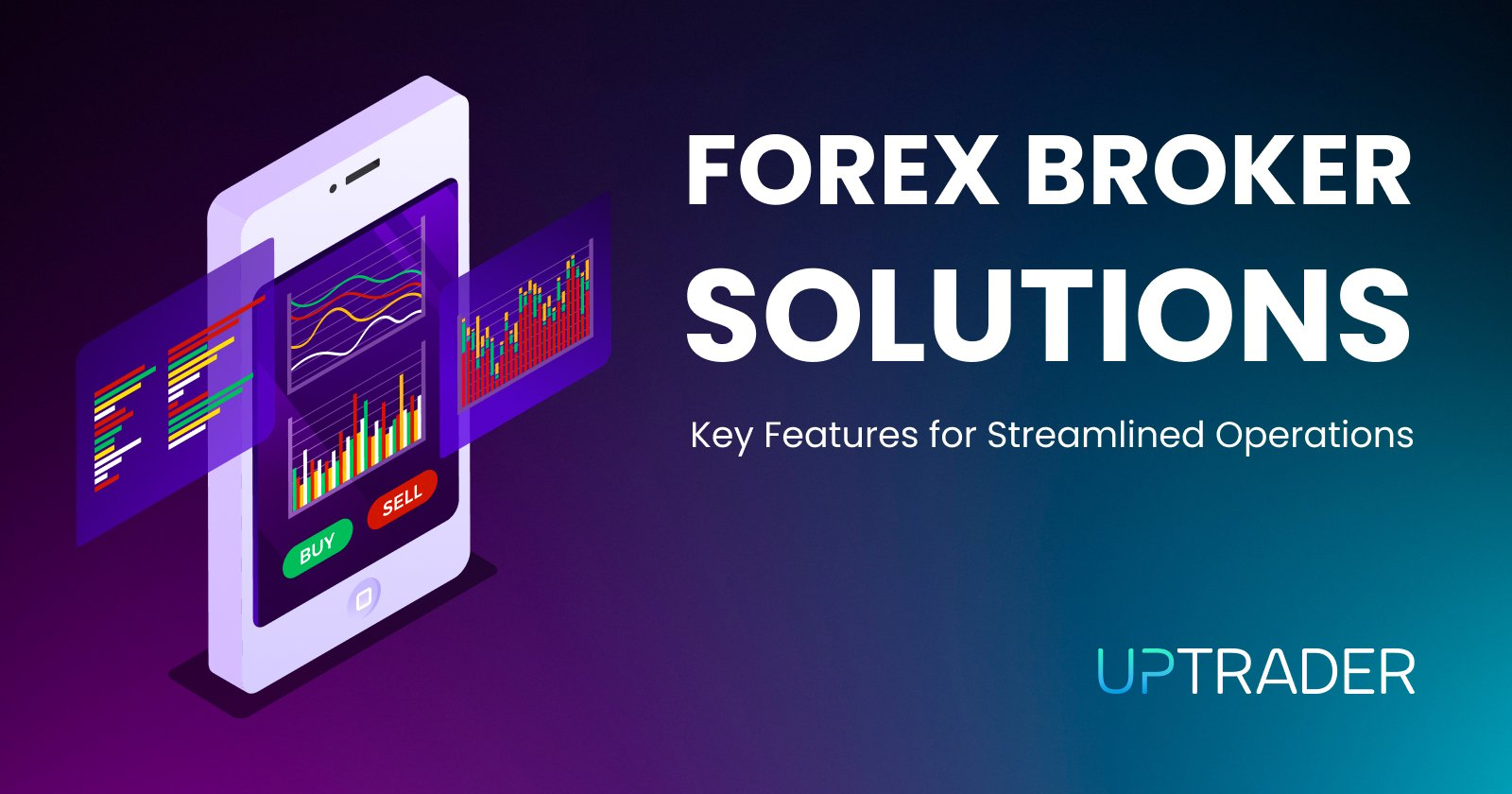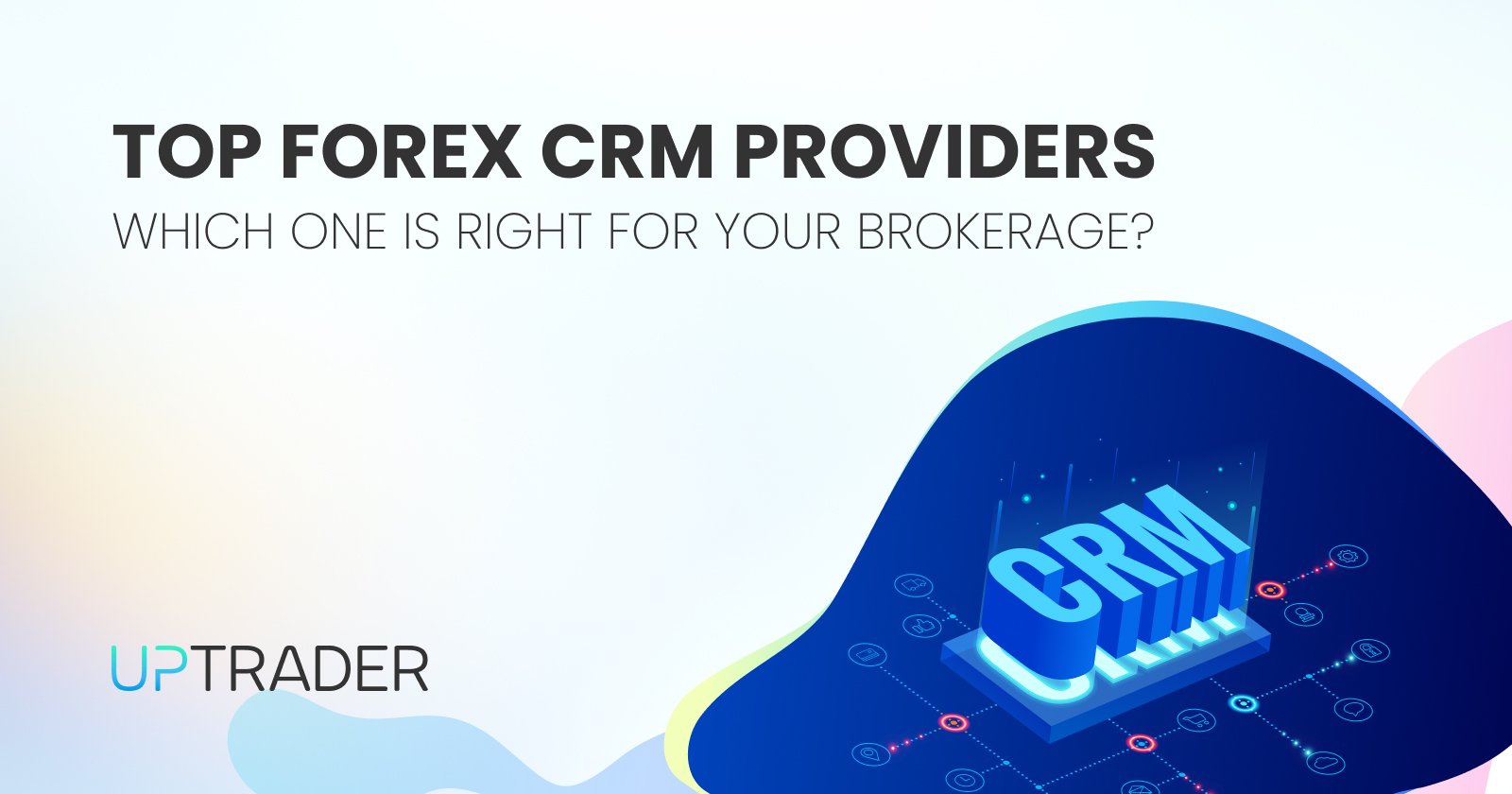
Leading Social Trading Platforms for Forex Brokers in 2025
Social trading now includes community-driven interaction, automated copy trading, and in-depth analytics integrated into one, turn-key white label system. By 2025, social trading platforms will be a required software for brokers trying to attract millennial and Gen Z investors.
Due to having a large number of users and maintaining an extensive social network trading ecosystem, eToro and Zulu Trade appear to be competing against each other. For copying the streams of highly skilled, if not high-risk, forex traders, access to the community, performance data, and quantifiable risk shares is crucial. Meanwhile, niche providers Darwinex and Covesting distinguish themselves through performance and tokenized incentives, as well as DeFi strategy integration. Myfxbook AutoTrade and Tradeo offer peer-to-peer mentoring and Trading Platform integration. With newer entrants, upstart white-label providers like UpTrader allow brokers to completely customize and brand their social trading solution, which bundles PAMM and MAM with copy-trading under one roof.
As AI‑driven analytics, decentralized finance bridges, and cross‑asset community feeds become standard, selecting the right platform in 2025 depends on balancing ease of use, risk‑management tools, regulatory compliance, and growth potential.
The Rise of Social Trading in Forex
Social trading — often called copy trading or mirror trading — lets traders tap into collective wisdom by following, copying, or collaborating with seasoned investors rather than going it alone. For highly leveraged forex traders, community streams, along with performance shares and risk parameters that everyone can access, are extremely valuable. Vying for the competition posed by brokers targeting millennials and Gen Z by 2025, social trading will no longer be considered an add-on feature but rather an essential attribute in brokerage firms.
Top Social Trading Platforms in 2025
UpTrader: White‑Label Social Trading Solution
UpTrader is a turnkey solution that provides brokers with an off-the-shelf social trading interface that targets their branding strategy, enabling them to market the platform in weeks instead of months. It allows brokers to combine all three models through a unified backend infrastructure by integrating PAMM, MAM, and copy-trading technologies.
Brokers benefit from advanced risk‑management modules, such as dynamic stop‑loss limits and equity‑adjusted lot sizing, to protect both their business and clients’ capital.
Supporting multi‑asset classes — including forex, CFDs, crypto, and commodities — UpTrader meets the growing demand for cross‑asset social trading feeds while serving as a powerful growth engine for brokerages.
eToro: The Pioneer of Social Investing
eToro enables users to copy intelligent investors using the company’s proprietary technology through its CopyTrader™ interface. eToro offers customers adjustable risk parameters alongside transparent performance histories, which can be verified, enabling risk-sensitive traders' confidence.
Recent enhancements include Smart Portfolios — bundles of diversified strategies under thematic umbrellas such as “Green Forex” or “AI‑Driven Traders” — and a recurring investment plan that automates periodic purchases with minimum trades as low as USD 25.
ZuluTrade: Global Copy Trading Leader
ZuluTrade connects followers with more than 2 million strategy providers offering signals across forex, commodities, and indices. To maintain a certain level of compliance with policies, the platform makes use of multiple licenses and sharp liquidity pools offered by institutional brokerage partners.
Even during unprecedented market shifts, finely honed signal optimization engines managing risk are ever-present as they scale down lot sizes to follower equity.
Myfxbook AutoTrade: Seamless Integration
The Myfxbook AutoTrade service is linked with Trading Platform 4 and 5, and it does not require API integration or third-party connections. Traders subscribe to strategy providers and Myfxbook's analytics dashboard tracks their performance, offering drawdown tracking and trade performance breakdowns in real-time.
In 2025, AutoTrade added social functionalities such as in-platform chat rooms and community-curated strategy ratings to enhance interaction.
Darwinex: Performance‑Weighted Investing
Darwinex operates as both a broker and an exchange for trader strategies, called “DARWINs”. Each strategy receives a proprietary “DARWIN Score”, given the level of volatility, consistency, and market conditions.
In early 2025 Darwinex integrated Forex with DeFi by enabling secondary-market trading and fractional ownership of top DARWINs through “investment shares” that are tokenized.
Strategic Mirror Trading with Covesting on PrimeXBT
Covesting merges copy trading with social-style token rewards on cryptocurrency, peculiarly enabling herding behaviour on cryptocurrency. Strategy managers earn COV tokens based on performance, while followers enjoy yield accounts and staking options.
Metrics displayed on the Covesting leaderboard include follower equity, risk scores, profit-sharing splits, and others, all supported by PrimeXBT’s ultra-low latency infrastructure.
NAGA: All‑in‑One Social SuperApp
In Q1 2025, NAGA relaunched its SuperApp interface, integrating copy‑trading with over 3,000 stocks, ETFs, and crypto assets in a single mobile‑first environment.
The revamped UI emphasizes an “Autocopy” mode that lets users auto‑sync with top traders, plus a native social feed for sharing analysis charts and live commentary. NAGA’s gamified leaderboard and interest‑bearing idle‑fund feature (paying up to 4 percent annually) further differentiate its community experience.
Tradeo: Community‑Powered Trading
Tradeo’s niche focus on real‑time “Wisdom of the Crowd” sentiment indicators and proprietary web platform has earned it a loyal following among risk‑aware forex traders.
Users can toggle between manual and copy‑trading modes, accessing advanced trade calculators (Fibonacci, pivot points) directly in the charting interface. Despite Tradeo’s comparatively smaller audience, the social interaction that mentoring and direct chat channels provide turns the platform into somewhat of a social hub.
Emerging Trends in 2025
- AI‑Driven Trade Recommendations: An increasing number of platforms utilize machine learning tools to highlight trending strategies and adjust stop-loss settings in advance. Deeper integration with natural language processing for sentiment analysis — drawing insights from both platform discussions and external news feeds — is becoming standard.
- Tokenization and DeFi Bridges: Token‑reward systems are proliferating, enabling secondary markets for strategy “shares” and unlocking liquidity for traders’ track records. Platforms are incentivizing users with their tokens as rewards, staking assets, or governance mechanisms.
- Regulatory Harmonization: To enhance efficiency and trust, platforms are automating KYC/AML compliance as well as social trading business jurisdiction investor insurance fund processes for servicing multiple jurisdictions.
- Cross‑Asset Community Feeds: Social traders no longer need to switch apps because all information about forex, stocks, commodities, and crypto is consolidated into a single interface, augmenting their social portfolios.
Selecting the Right Platform
- Performance Driven Investors: Darwinex users enjoy institutional-level analytics available with risk-adjusted DARWIN scoring and tokenized share ownership.
- Tech Savvy Traders: Those who appreciate high-speed execution integrated deeply with the Trading Platform will enjoy PrimeXBT's Covesting module and Myfxbook AutoTrade.
- Community Enthusiasts: Unlike the others, NAGA and Tradeo grant their peers a richer social experience with more advanced social networking and gamified trading boards, tailored to social traders.
- Brokers Seeking Branding Control: UpTraders’ offering unparalleled customizability, multi-asset support, and integrated CRM tools — enables brokerages to easily and effectively retain clients.
Conclusion
Social trading in the FX industry is expected to adopt a blend of algorithmic precision and community inputs ever-changing in 2025. Whether you’re mirroring top traders on global networks or licensing a white‑label engine for your brokerage, there’s a solution tailored to your style and scale.
As the industry moves toward tighter AI integration and deeper DeFi bridges, choosing a platform that not only meets today’s needs but is primed for tomorrow’s innovations will be key to staying ahead in the fast‑evolving world of social trading.
UpTrader gives you all the options, customizability, and support that you require from a single asset via Forex social trading to a multi-asset platform.
Get in touch with a consultant now so that we can show you how to penetrate the social market and bring your business to new heights.









